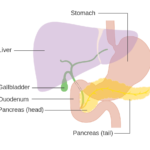serious mental illnesses
There is a much higher death rate for people with serious mental illnesses (SMIs) in Wirral, a metropolitan borough in Merseyside, England, than in the overall population. This problem emphasizes how urgently tailored healthcare treatments and support networks are needed to alleviate the health disparities that this vulnerable population faces.

Goal
SERIOUS MENTAL ILLNESSES
This post’s main goals are to offer a thorough analysis of the variables influencing the higher death rate among SMI patients in Wirral and to offer viable mitigation techniques for these risks.
- The Issue: A Higher Death Rate
- Serious mental disorders like schizophrenia, bipolar disorder, and severe depressive disorder have a substantially higher death rate in Wirral than the overall population, according to numerous recent research and health reports. There are several causes contributing to this higher death rate, including social, psychological, and biological ones.
Contributing Elements
Comorbidities in Physical Health
Physical health issues like diabetes, respiratory disorders, and cardiovascular ailments are more common in those with SMIs. The fragmentation of physical and mental healthcare services contributes to the high rate of misdiagnosis and inadequate management of these illnesses. The increased death rate is mostly caused by these comorbidities coexisting.
Factors related to lifestyle
Individuals with SMIs are more likely to adopt unhealthy lifestyle choices, such as smoking, substance misuse, poor food, and inactivity. These actions raise the chance of an early death and worsen physical health issues.
Quality and Access to Healthcare
serious mental illnesses
It is frequently difficult for people with SMIs to get high-quality healthcare. Within the healthcare system, stigma and discrimination can result in subpar care and follow-up visits. Furthermore, it’s possible that integrated care models that address the demands of both physical and mental health are lacking.
Economic and Social Disadvantages
serious mental illnesses
Adequate housing, unemployment, and poverty are social determinants of health that disproportionately impact those with SMIs. These socioeconomic disadvantages lead to a decrease in access to resources that are necessary for maintaining health as well as chronic stress.
- The Effects: Individual and Family Affects
- People with SMIs who pass away too soon have a significant influence on their families and personal lives. Significant emotional and psychological strain is placed on families and caregivers, and the loss of a loved one owing to avoidable medical issues can cause trauma and long-term bereavement.
Implications for Public Health
serious mental illnesses
There are wider ramifications for public health because to the increased mortality rate among individuals with SMIs. It draws attention to structural flaws in the delivery of fair healthcare and emphasizes the necessity of all-encompassing public health initiatives that take this population’s demands into account.
Techniques for Enhancement
Models of Integrated Care
For those with SMIs, the use of integrated care models that integrate primary care and mental health treatments can greatly enhance health outcomes. Better care coordination is made possible by these approaches, which guarantee that the demands of both physical and mental health are met concurrently.
- Health Promotion and Education: Initiatives that educate people with SMIs about the value of physical health and encourage healthy living can help lower the prevalence of comorbid illnesses. These activities must to be offered in a nonjudgmental, encouraging environment and customized to meet the particular needs of this demographic.
Improved Healthcare Access
serious mental illnesses
In order to improve healthcare access for individuals with SMIs, structural impediments as well as individual requirements must be addressed. This can involve putting regulations in place that guarantee services are accessible and inexpensive as well as educating medical personnel on how to give compassionate, stigma-free care.
Support for Socioeconomic
serious mental illnesses
Improving the general well-being of people with SMIs requires addressing the socioeconomic determinants of health. Supporting work, housing, and social services that can lessen the effects of poverty and social exclusion is part of this.
In summary
The greater death rate in Wirral among those suffering from severe mental diseases is an urgent public health concern that has to be addressed right away. We may endeavor to reduce health disparities and improve the quality of life for this vulnerable population by addressing socioeconomic disadvantages, promoting healthy lifestyles, improving access to healthcare, and putting integrated care models into practice. It is imperative that public health authorities, healthcare providers, and community organizations work together to establish a welcoming and inclusive atmosphere that puts the health and welfare of people with SMIs first.


